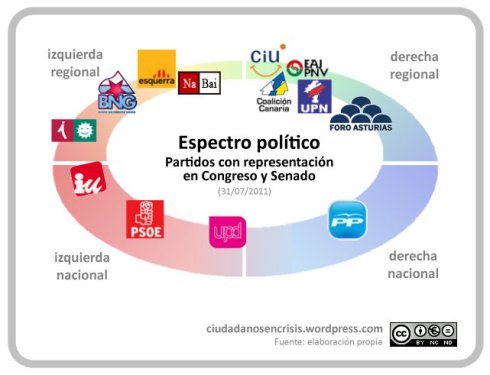By Bonnie N. Field (Bentley University) and Kerstin Hamann (University of Central Florida)
Multinational democracies typically have territorially-concentrated minority groups who may seek to alter the existing patterns of political authority. This may include changing which political institutions have the authority to make (which) decisions that affect their territory, for example governments at the national, regional or local level, or indeed challenging the existing territorial boundaries of the country through secession. They may also advocate policies and symbols that are representative of the multinational or multicultural nature of the country’s people; or challenge the territorial distribution of taxation and public spending.
In developed democracies, nationalist groups are important in countries otherwise as diverse as the United Kingdom (in Scotland, Wales and Northern Ireland), Canada (in Quebec), Spain (in the Basque Country, Catalonia, and Galicia), or Belgium (in Flanders and Wallonia), amongst others. Political parties often arise to represent this key political divide. Because some parties seek to represent a concentrated, territorial-based sentiment, for example in the province of Quebec, they only present candidates for public office in territorial constituencies where this sentiment is relevant.
Therefore, they are often regionally-based parties and do not present candidates across the entire territory of the country, in contrast to what we call statewide parties. For example, the Scottish National Party presents candidates in constituencies in Scotland, but not in England. Nonetheless, regionally-based parties often present candidates for public office at various territorial levels, for example for the local, regional, national or European parliaments.
In multinational democracies, the regional parties compete with other parties on the basis of differences on territorial issues. However, clearly territorial issues are not the only ones that matter to the parties and voters. Parties also compete on left-right policy issues, such as the extent of social welfare spending or the degree to which trade should be regulated, amongst other issues.
In a recent research article, we set out to better understand the behavior of regionally-based nationalist parties when they win seats in a county’s central parliament. Different environments present different strategic challenges for distinct parties. Regionally-based parties are typically minor parliamentary actors in the central parliament, with no ability to pass their preferred policies without the support of other, often statewide parties; yet, they appeal to a territorially-limited electorate to win votes. Given these circumstances, do they opt to present policy proposals in a way that emphasizes their territorial pedigree? Or do they choose to present bills without much reference to territorial politics, perhaps in an attempt to garner support from other parties or voters that are less supportive of a territorially-based agenda? If they present policy proposals in a way that links them to territorial politics, what kinds of arguments do they make to defend them?
To help answer these questions, we studied the Catalan Convergence and Union (CiU) party and the Basque Nationalist Party (PNV) in Spain between 1979 and 2011. Using these two cases, we analyze whether regional parties rhetorically connect their policy proposals to the territorial divide and regional interests when presenting bills in parliament. Perhaps surprisingly, we found that they emphasize the territorial divide infrequently. Of the parties’ 214 bill proposals that made it to the stage where a debate occurred in the Spanish Congress of Deputies, the regional party’s spokesperson introducing the bill referenced territorial politics in less than one-third of the cases (29%, or 62). In over two-thirds of the cases, the bills the CiU and PNV introduced lacked rhetorical connections to the territorial division.
We also wanted to know which arguments the parties used to justify the proposals that they linked to territorial politics. Based on arguments frequently referenced in the scholarly literature on multi-nationalism, we developed five justifications that parties might use. We found that the parties more frequently justified their policy proposals based on legal-constitutional compliance (37%) and bettering the state’s administrative performance (21%), than on the basis of cultural distinctiveness (18%), citizen rights and representation (15%), and economic and welfare concerns (8%).
Do all regional parties strategize the same way when presenting their policies? Our research suggests that differences exist. To illustrate, PNV, which has a long-standing reputation as more assertively nationalistic – at least until more recently – than the CiU, connected more of their policy proposals to territorial politics than the CiU. The PNV also used legal-constitutional as well as cultural distinctiveness justifications for those policies more frequently than the Catalan party. Thus, not all regional parties behave the same way when attempting to garner support for their proposals in the national legislature.
The question, then, is how we can explain the fact that regional parties, perhaps counterintuitively, generally don’t emphasize the territorial divide when they present their bills in parliament. We think that the reason may lie in the fact that while the PNV and CiU were minor parties in the central parliament, they were also dominant mainstream parties in their respective regions where they also frequently governed. As mainstream governing parties in their regions, they had to compete on multiple subjects, going beyond the territorial divide, against other statewide and regional parties.
This research sheds light on the behavior of regional parties in national parliaments, about which little is known. In Spain, they don’t simply and uniformly defend niche territorial interests. Rather their behavior is more strategic and complex than is often presumed. To understand the behavior of regional parties, we need to understand their positions in their respective regions as well as the particular arena in which they are operating, in this case the national one.
Photo source: https://ciudadanosencrisis.wordpress.com/tag/espectro-politico/


